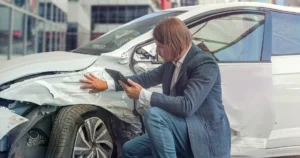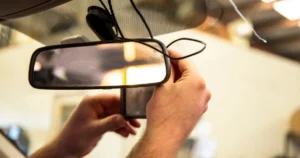 Being involved in a car accident can be a life-changing event. You may not be able to work while you recover from your injuries, and you may be placed on restricted duty when you return.
Being involved in a car accident can be a life-changing event. You may not be able to work while you recover from your injuries, and you may be placed on restricted duty when you return.
If you were not the at-fault party in your accident, you may need to file a lawsuit against the at-fault party to compensate you for all the costs and damages you incurred. But Indiana has a time limit to file a personal injury lawsuit, and this time limit is known as the statute of limitations.
This can be a complicated process, so it is in your best interest to have a trusted car accident attorney fighting for your right to compensation. Our firm charges no upfront fees and we offer a free consultation, so contact us today if you have been injured or have questions about the legal process.
The statute of limitations applies to civil lawsuits where you are seeking compensation in the following situations:
Personal Injury
Indiana Code 34-11-2-4 has a two-year statute of limitations on personal injury cases. The clock usually begins to run from the date of the accident, with a few exceptions.
You can sue for compensation for your injuries suffered as the result of a car accident, whether you were a:
- Driver
- Passenger
- Pedestrian
- Bicyclist
You can seek compensation in a civil lawsuit to help you pay for:
- Medical expenses
- Lost wages (both past and future)
- Loss of companionship of a spouse
- Disability costs
- Pain and suffering
Injuries to Children
Minors cannot file lawsuits for themselves, so the statute of limitations for minors who were injured in an accident begins on the person’s 18th birthday.
Parents may file a claim on their child’s behalf while the child is still a minor. However, once the child reaches age 18, he or she may file a lawsuit if the parents have not already done so. The personal injury lawyers at our law firm are ready to help.
Property Damage
The two-year statute of limitations in Indiana also applies to property damage. This can include a wide variety of losses a victim may experience, but claims generally fall into one of two specific categories:
- Damage to your home or other real property
- Personal property, such as repairing or replacing your car and any lost items inside
Wrongful Death
According to Indiana law, the relatives of a deceased victim have two years from the date of death to file a lawsuit for wrongful death. There are limitations on who is entitled by law to file the claim and collect any proceeds or settlement. If there is no will, the Indiana intestate law provides a clear hierarchy of who is entitled to represent the estate.
Cases Against the Government
Cases against a city or county for damages resulting from a car accident must be filed within 180 days from the accident, and cases against a state government agency (such as INDOT) need to be filed within 270 days of the accident. Therefore, one case can theoretically have multiple statute of limitations dates.
Indiana also limits the kinds of claims you can file through laws like the Federal Tort Claims Act, which creates different rules when the government is the defendant. There are no punitive damages awarded when you sue a government entity in Indiana, and your overall damages are limited to $700,000.
Do Not Wait to Contact a Lawyer
If you or a loved one is suffering from injuries sustained from a car accident, it is essential to contact an experienced personal injury lawyer for assistance. At Pfeifer, Morgan & Stesiak, our lawyers will explain your rights and options during a free, no-obligation consultation. And you will only pay attorneys’ fees if we earn a verdict or settlement on your behalf.
Call (574) 444-0741 today
to schedule your free consultation.











